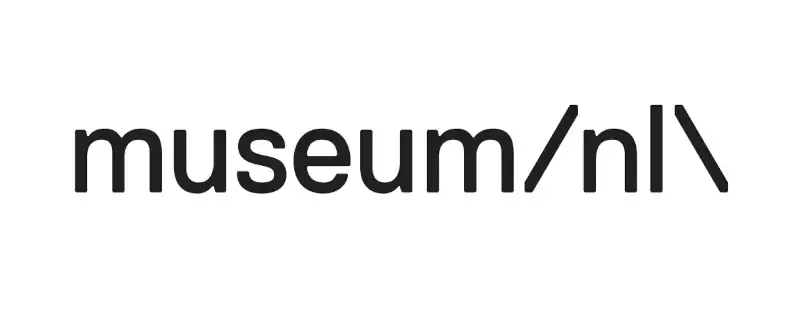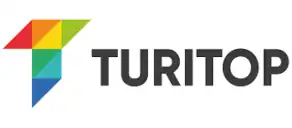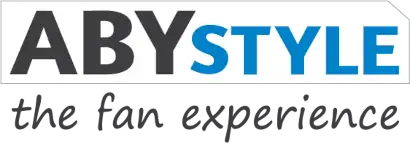How Queue-Fair Helps Financial & Insurtech Firms Achieve DORA Compliance

How Queue-Fair Helps Financial & Insurtech Firms Achieve DORA Compliance
Regulatory bodies like the UK's Financial Conduct Authority (FCA) have imposed significant fines on financial institutions for operational failures, including website and system downtimes that adversely affect customers. Here are notable examples that have been widely reported:
‘Our website and services could not satisfy the peak demand of our offers. Queue-Fair saved our bacon! Straightforward to understand and easy to implement, with great support throughout the process. We can now run our campaigns reliably, confident that our website will cope.’

‘We work with some of the biggest brands out there and with that comes a large demand during sales and drops. We need a fair queuing platform to provide all customers with a fair and painless experience when engaging with our platform. Queue-Fair was not only very easy to implement - in a day! - and ran smoothly, but also the team understood our needs and were able to work with us to achieve our goals.’

‘The people at Queue-Fair went above and beyond to help us implement their queuing system within one day. With over 25,000 people in the queue, they helped us manage traffic during our high peaks. Queue-Fair does what it is meant to do; queue people at a competitive price. We are happy with the Queue-Fair system and will keep using it during future events.’

‘Just what we needed! Feedback was really good and Queue-Fair worked how we needed it to. If you've got thousands of people hitting refresh on a large ticket onsale you need a safety net! The costs of having Queue-Fair compared with the costs of database issues or dealing with angry customers means it is a no brainer. We're really happy with it!’

‘Amazing support, everything works from the get-go. Queue-Fair is helping us reducing high demand on our website, preventing it from crashing. The steps to get up and running were far easier than expected, and the support has been phenomenal. The documentation is very clear and concise. While the queue was running, no issues were detected whatsoever. Overall, it's the perfect solution for us. Everything has been excellent.’

‘Very useful tool and excellent technical assistance. I highly value its smooth operation. It is helping us to manage successfully times of high user traffic on our website. We are more productive thanks to its tool since it allows us to dedicate efforts to other tasks, leaving its part well covered.’

‘Takes all the stress out of high demand event launches. Very easy to configure and set up with a very attentive support team. Apart from no stress we actually sold out quicker. It does exactly what it says on the tin. The solution worked perfectly.’

‘A big Thank You for turning our enquiry around so quickly. Emailed at 9pm Wednesday, received a fully branded Queue page ready to use at 11am Thursday. Simply brilliant! The dashboard and features are great - really intuitive, really clean and easy to use. We queued over 22,000 people for our product launch event at a cost that was extremely competitive. Thanks so much for everything! I'm really happy to give Queue-Fair a glowing testimonial and would recommend them to any business who needs a queue system for their event or promotion.’

‘Excellent support. Our business has complex commercial demands and the high traffic to our site at specific times and dates was causing huge problems. Queue-Fair now manages these effectively and we have control of the flow of sales. The immediate support available over the phone is brilliant - the Queue Fair team has gone out of their way to problem solve and assist.’

‘The perfect solution for the release of our limited edition figurine! Queue-Fair is very easy to implement and we were well supported and guided in setting up the parameters. The real-time reporting is great and allows us adjust our parameters during the event without crashing our server. We are very satisfied and plan to use Queue-Fair for our future releases.’

‘We are very glad to have Queue-Fair as our Waiting Room partner for the three big iPhone launch events. Our website did not crash! We even went beyond our Sales Target, thanks to Queue-Fair! The Queue-Fair platform is user-friendly - very easy to use - and the data reports gave us meaningful insights for our future projects. We are very happy to have them as our partner :) Queue-Fair will surely be our only Waiting Room recommendation to our dear friends. More power Queue-Fair! Good job!’

‘SUCCESS!!! Yesterday went so smoothly that my client cried. Literally. Such a fantastic experience all around. Incredible support. Incredible product that provided an excellent experience for the end user. My client was thrilled as we watched from the Queue-Fair dashboard as the users rolled in to the virtual waiting room then were passed to the site and successfully made their purchases.’

These incidents highlight the importance for companies to anticipate potential surges in online activity, especially when setting customer deadlines, and to ensure their digital infrastructure can handle increased traffic to prevent service disruptions.
These cases underscore the importance of robust IT infrastructure and operational resilience in the financial sector. Regulators like the FCA hold institutions accountable for system failures that disrupt customer access and market stability.
The Digital Operational Resilience Act (DORA) is a game-changer for the financial and insurance sectors, mandating strict cybersecurity, operational resilience, and risk management requirements. As of January 17, 2025, all financial institutions and their technology providers operating within the EU - or serving EU-based customers - must comply with these regulations.
For banks, insurers, fintechs, and insurtech firms, DORA represents both a challenge and an opportunity. Compliance will enhance security, build trust, and unlock innovation, but failure to meet the requirements could lead to fines, reputational damage, and operational downtime.
A key concern for compliance is managing traffic surges, cyberattack resilience, and system availability - especially for AI-driven financial processes. This is where Queue-Fair.com provides a proven and trusted solution.
Why DORA Compliance Matters for Financial & Insurtech Firms
DORA is part of a broader EU effort to harmonize cybersecurity laws and strengthen the digital resilience of financial services. It mandates:
Beyond avoiding regulatory fines and reputational risks, compliance helps future-proof businesses, enabling them to integrate cutting-edge technologies responsibly.
Queue-Fair's virtual waiting room technology is already trusted by governments and financial institutions across Europe to manage peak demand, prevent downtime, and protect systems from cyberattacks.
Government agencies across Europe rely on Queue-Fair to handle high-traffic events, prevent cyber disruptions, and ensure digital services remain operational:
This proven track record makes Queue-Fair the ideal partner for financial institutions complying with DORA regulations.
DORA mandates businesses to plan for ICT disruptions. Queue-Fair prevents system crashes and overloads by intelligently managing high-demand periods - whether for policy applications, claims processing, or regulatory filings - ensuring systems remain stable.
Firms must conduct resilience testing and establish risk frameworks. Queue-Fair smooths out demand surges, ensuring financial platforms remain accessible, compliant, and secure during peak traffic events.
DORA requires AI systems to maintain automatic logs and record-keeping mechanisms. Queue-Fair's real-time tracking ensures transparent user management, providing a clear audit trail for regulatory review.
Regulators expect financial services to treat customers equitably, especially when demand is high. Queue-Fair operates on a first-come, first-served basis, preventing discrimination, system overloads, or unfair access issues.
DORA extends compliance requirements to technology providers. With built-in traffic filtering, Queue-Fair blocks bot attacks, mitigates denial-of-service risks, and safeguards systems from malicious overload attempts aligning with DORA's cyber resilience goals.
The Digital Operational Resilience Act (DORA) mandates that financial entities establish robust Information and Communication Technology (ICT) risk management frameworks, which include comprehensive incident reporting mechanisms. Queue-Fair's customer portal reporting page can significantly aid finance businesses in meeting these DORA compliance requirements by April 2025 through the following features:
Real-Time Monitoring and Incident Reporting: Queue-Fair provides real-time tracking of website traffic and system performance. This continuous monitoring enables financial institutions to promptly detect and document ICT-related incidents, ensuring timely reporting to regulatory authorities as required by DORA.
Detailed Analytics and Audit Trails: The platform offers in-depth analytics, capturing data on user interactions, traffic patterns, and system responses. These detailed records create a comprehensive audit trail, facilitating transparent reporting and aiding in post-incident analysis to prevent future occurrences.
Operational Resilience Testing Support: Queue-Fair's reporting tools assist in evaluating system performance during stress tests and simulated cyberattacks. By analyzing how systems handle peak traffic and potential threats, financial entities can assess their operational resilience and identify areas for improvement, aligning with DORA's resilience testing requirements.
Third-Party Risk Management: Utilizing Queue-Fair allows financial institutions to monitor and manage interactions with third-party ICT service providers effectively. The reporting page offers insights into third-party performance and any associated risks, ensuring that all external partners comply with DORA's stringent standards.
While the primary compliance deadline for the EU's Digital Operational Resilience Act (DORA) was January 17, 2025, there are subsequent milestones that financial entities must be aware of:
1. Submission of Registers of Information. Financial entities are required to maintain comprehensive registers detailing their contractual arrangements with Information and Communication Technology (ICT) service providers. These registers must be submitted to their national competent authorities (NCAs) by April 4, 2025.
2. NCA Reporting to European Supervisory Authorities (ESAs). Following the submission from financial entities, NCAs are obligated to report these registers to the ESAs by April 30, 2025
Financial entities should utilize this period to finalize and review their registers of information to ensure timely submission by the April deadlines.
Additionally, for financial institutions operating in the United Kingdom, the UK Operational Resilience Rules mandate full compliance by March 31, 2025. These rules, while separate from DORA, share similar objectives in enhancing the operational resilience of financial services.
Therefore, depending on your operational jurisdiction, March 2025 serves as a critical period for ensuring compliance with the relevant operational resilience regulations. Queue-Fair can be a big part of that.
Financial and insurtech firms should have already prepared for the January 2025 deadline that has now passed, by:
As you prepare for the next deadline, by adopting Queue-Fair's technology, financial institutions can seamlessly comply with DORA while improving customer experience, security, and system stability. More than just a compliance tool, Queue-Fair is an enabler of digital transformation, helping businesses unlock new innovations responsibly.
Protect your operations, stay compliant, and ensure business continuity, with Queue-Fair
Invented and originally patented in 2004, Queue-Fair is the original Virtual Waiting Room, providing online queue management for busy websites and apps.
2026 The Fair Queue People Ltd. - All Rights Reserved.
Part of the Orderly family of queue solutions - OrderlyQ - OrderlyStats - WeQ4U